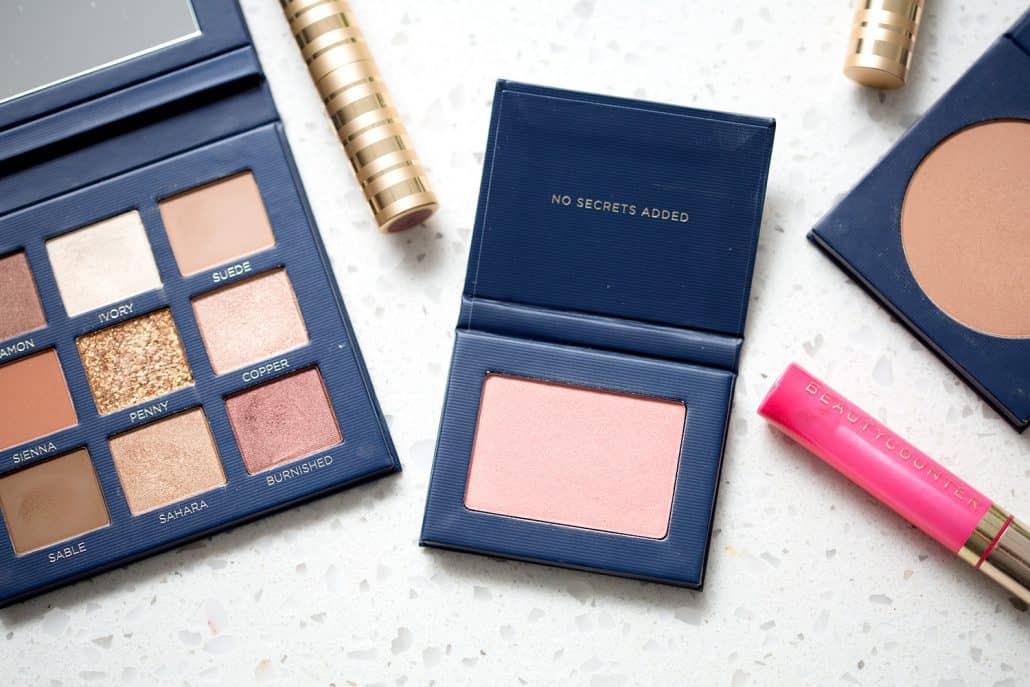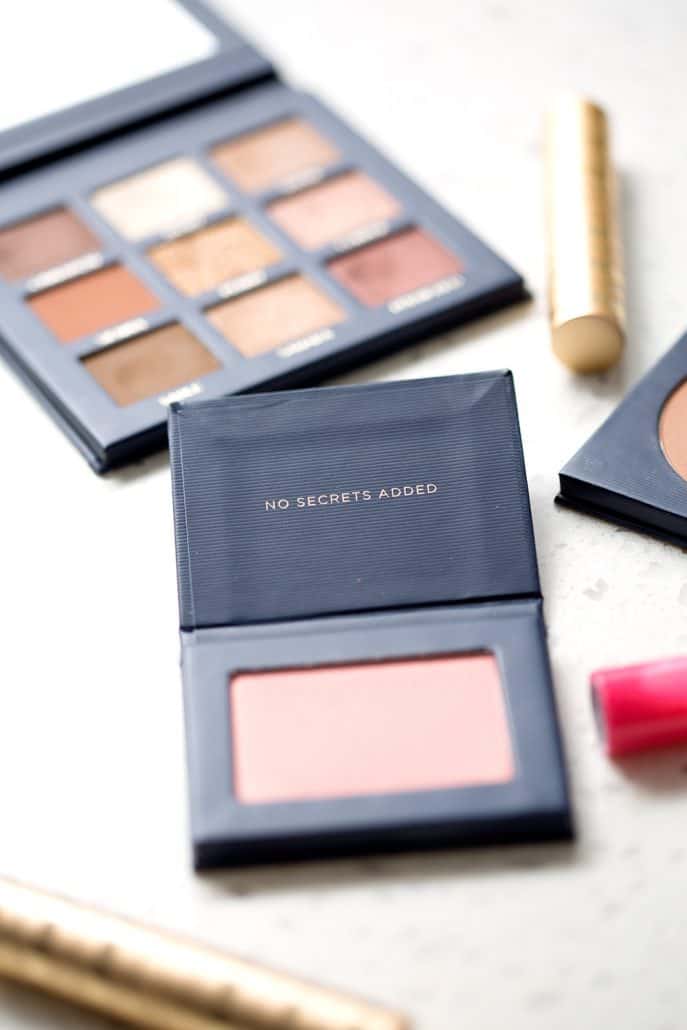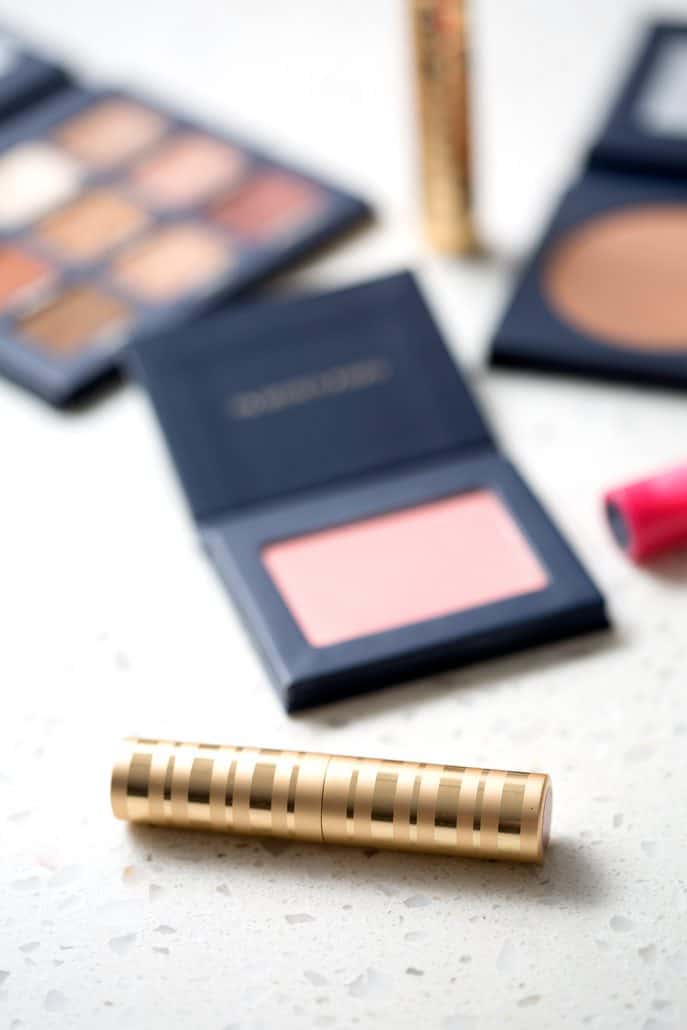Heavy metals in cosmetics may not be that great of a concern to you for a variety of reasons. It’s hard not to believe that our government wouldn’t protect us from companies producing products that contain harmful ingredients. Additionally, even if there is heavy metal in cosmetics, it’s easy to think that because you are not ingesting the makeup that your body won’t be affected by its contents. Unfortunately, none of those things are true.
We all know the dire consequences of ingesting lead which is a heavy metal. It was banned from paint and gasoline decades ago because it’s so harmful. However, lead still lurks in products and places that we use every day. Yes, even in lipstick. The FDA did a 400-lipstick study and found that 99% of lipsticks contained lead. [source: fda.gov]
While there is a lot of governmental regulation in many industries, the cosmetics industry isn’t one of them. In the US, congress hasn’t passed a law regulating the cosmetics industry since 1932. That means that only 30 harmful chemicals are banned or restricted from use in cosmetics. It’s totally legal for known carcinogens to end up in your makeup including heavy metals like lead, aluminum and arsenic.
Just because you don’t eat your eye makeup doesn’t mean that you’re not absorbing the heavy metals in your cosmetics. Your skin is your largest organ and it absorbs everything you expose it to. Studies have shown that women ingest almost 4 pounds of lipstick in their lifetime. Say, what?! You may think that you’re not ingesting it but consistent use of a long period of time adds up. [source: futurederm.com]. Since no amount of lead in your system is good for you, this is a problem.
Why are heavy metals in cosmetics?
Cosmetics companies are not knowingly putting heavy metals in makeup. Heavy metals appear in cosmetics because they occur naturally in the environment. This is why ‘natural’ makeup isn’t always the safest. The ingredients that the cosmetic companies use to give products color are typically contaminated with heavy metals due to the mining and manufacturing process.
What are the risks of heavy metals?
Exposure to heavy metals such as lead, chromium, mercury and arsenic can cause cancer, organ damage and have neurological effects. It’s impossible to have a ‘heavy metal’ free environment. It’s really just best to lower your heavy metal exposure because they build up in your system over time. If you're interested in understanding more about heavy metals Eileen Laird did a great podcast about the topic. Click here to listen to Episode 101 over at the Phoenix Helix Podcast.
How do I know if heavy metals are in my makeup?
Most cosmetic companies don’t list the ingredients of their products and they don’t test for heavy metals in their makeup because they aren’t required too. Beautycounter is one of the few, if only, cosmetic companies that not only tell you what is in their products but also test every batch to ensure that the products meet their strict standards.
How do I avoid heavy metals in cosmetics?
Beautycounter standards clearly go beyond what is legally allowed in the US but also in Canada and the EU. They screen raw materials as well as the finished products to ensure they meet their strict safety standards. When it comes to colorants, out of the 153 cosmetic colorants allowed in the EU, and the 63 cosmetic colorants allowed in the US, Beautycounter prohibits the vast majority from being used in their products.
Lead and other heavy metals in cosmetics are still so prevalent in our daily lives that it’s important that we do our best to limit exposure. We can’t control everything in our environment but we can control the products we put on our skin.
If you're interested in Beautycounter products, click here to check out their website for their full line of skincare and cosmetics.
If you’re interested in switching over to safer cosmetics but don’t know where to start, click here to fill out my free skin consultation form. I’ll give you a personalized and custom skincare and makeup routine and product suggestions.





Leave a Reply